8 Tips On Cleaner Eating And Living In The New Year! From Dietician Brianna Meghawache
Photo credit: Brittney Weng (etsy.com/shop/cityturtles)
8 Nutritionist-Approved Ways to “Detox” in the New Year
Brianna Meghawache, Registered Dietitian at Nourished by Bri
“Eating clean” is all the rage this New Year’s! How discouraging it might be, with current diet trends all over the map, to find many different definitions of clean eating when you simply want to tackle your health issues the right way. Popular diets today range widely in their foundation and restrictions: we’ve got ultra-low-carb ketogenic diets, ancient (though pseudo-science-founded) Paleo diets, newer and trendy 30-day recipe plans, seemingly extreme and expensive versions of fasting, and finally – dare I say it out loud in carnivorous Albertan territory – vegan and vegetarian diets. Unfortunately, most dieting programs, plans and philosophies are quite inconsistent in their rules according to who you talk to, and lack valid scientific backing for their effectiveness.
If you’d like to achieve health in a sustainable manner, not taking steps backward and regaining weight, consider that small yet intentional steps toward removing non-nutritious foods and including nutrient-dense foods is the most effective way to achieve a healthy weight, reduce systemic inflammation, and achieve your best health!
I promote disease prevention through foods all the time, but it’s not just unhealthy foods that load our body down with extra unnecessary tasks of cleaning itself out! The most commonly found toxins that affect us are bisphenol-A (BPA), heavy metals, PCBs, and pesticides. Here are my top 8 ways to clean out the body by removing potential carcinogens, hormone disruptors, disrupted hormones, and chemical or hormonal potentiation of chronic disease.
8 Nutritionist-Approved Ways to “Detox” in the New Year!
Eat more plants! Plant-based proteins and diets are SO IN right now!
There is not one person I have met that thinks they eat enough vegetables. Whole plant foods are chock full of antioxidants, vitamins, and minerals. Take one step further to increasing your intake of plant-based foods by trying a new recipe containing beans, your favourite vegetable, or a new ancient grain that you haven’t tried yet. Note that if you are concerned about organic versus non-organic, it is better to include non-organic vegetables and fruits than to exclude them for the purpose of avoiding pesticides (further explained in this video!). For more information on how a slightly more or drastically more plant-based diet can help you, check out this blog post.
Replace added sugars with lower sugar substitutes and WEAN yourself off sugar.
Some people are cautious to remove added sugars from pop, honey, syrups, cane sugar, and sweets with artificial sugars, and understandably so. There has been lots of controversy surrounding artificial sweeteners in the past 20 years. There have been some thoroughly-tested safe natural sweeteners such as stevia and xylitol, that, added in small amounts, can satisfy your sweet tooth. Try substituting regular sugar in your recipes and hot beverages with half the volume of Truvia – a stevia-containing baking substitute – or use raw fruits, blackstrap molasses, or a few dates to add sweetness to a breakfast, salad dressing, or sauce. Over time, reduce the amount of sugar you use – don’t worry, your taste buds will adjust!
Reduce toxic load from plastics – on yourself, and on the environment!
Do not, do not, do not, use plain water bottles. BPA-free plastic containers and BPA-free water bottles should be number one on your shopping list if you don’t already possess or use them. Consider the tons of plastic waste, wraps, and bottles from the foods and beverages cleaned out by customers at just one grocery store in a year, let alone the entire globe! A lot of it ends up in oceans and is very dangerous to marine life.
Some plastics containing the recyclable label 3 and 7 contain BPA – avoid heating and using these if you can. Canned foods are also sometimes lined with BPA-containing resin, so as for the items you would usually get canned, try to cook from scratch.
While we’re at it, go bag-less and receipt-less at the grocery store. Bring your own bags – remind yourself by writing it at the top of your grocery list so that you grab them before you run out the door!
Printed receipts contain bisphenol-A – which is numerous in other products – but this is one item you might touch daily, so avoid touching them if you can and ask for them to be put in your bags if you need to keep them. If you must work with receipts, try to use gloves.
If you must use plastic containers, avoid putting them in the dishwasher or heating them in the microwave. The plastic may break down over time and leach into foods. Click here for beautiful, biodegradable beeswax cling wrap, here for trendy ocean blue BPA-free glass food storage containers, or here for reusable sandwich and snack bags.
Eliminate body negativity and worry. (Listen to Bob Marley’s “Don’t Worry, Be Happy” if you need a reminder!)
Stress hormones (adrenaline and cortisol) are certainly linked to a depressed function of the immune system, which then leads your body to be less able to fend off illness, toxins, and chronic health issues. One significant source of stress in a lot of people I meet and work with is their struggle with body image.
Your journey to health is not going to end next week, next month, or likely even next year. It’s going to last your entire life, and therefore there isn’t a reason in the world that we should give ourselves permission to sit comfortably in a state of body negativity. Take every day as an opportunity to bless yourself and others. Seek to emulate that irresistible joy that radiates from people who accept and love who they are. Stop trying to “punish” yourself with a workout after eating treat foods. Instead, reward your heart, lungs, and brain for working so hard all day for you with cardiovascular care in the form of exercise. Then, fuel appropriately so that your muscles and blood vessels have all the tools they need to rebuild, recover, maintain, and strengthen your body.
Having trouble with setting body-positive and healthy, but not overwhelming goals on your own? Send me a personal message here detailing what you are experiencing and I’ll see how I can help. If your stress response runs deeper than just food and body image, perhaps seek out a counselor or psychiatrist or psychologist in your area to assist you in dealing with the stresses in your life.
Review the ingredients in your toiletries. (Not just for the ladies!)
This one’s not just for the ladies. Listen here to a snippet about the latest on aluminum-containing antiperspirants. You can then further review the things that you apply daily and weekly to your skin or rinse in your mouth. Look beyond the claims touting products as “natural” and “organic”, and screen the labels for any POSSIBLE hormone-disrupting or carcinogenic chemicals, such as those listed here, to help not only yourself, but the wildlife of planet Earth. Watch out also for hair dyes – every time you have your hair lightened or bleached, you’re infusing your scalp with a hefty dose of ammonia. Best to have a low-maintenance ‘do if anything!
Get moving and get your sweat on!
Just 30 minutes of moderately-intense, almost-short-of-breath physical activity is enough to help your blood vessels clean out nasty cholesterol plaques. Combined with not smoking and eating a plant-based diet, exercise is an important part of the formula to halt and even reverse heart disease. Many of us 9-to-5 folk spend a lot of the day sitting. Start by getting up out of your chair a few 15 minute intervals a few times a day – even just marching in place – and gradually increase to a point where you have trouble completing a run-on sentence like this one. Sweating and rehydrating helps your skin and organs to clean out your blood – so if you are able, do an activity that gets you sweating a bit!
Increase your fiber intake.
Most Canadians and Americans get no more than 15 grams of fiber each day, whereas the minimum recommended intake is 25 grams for females and 38 grams for males. Make sure that your breakfast begins with a hefty dose of fiber – not just from Metamucil or Benefiber. Fruits, vegetables, whole grains and legumes (lentils, split peas, chickpeas, and other beans) include special antioxidant compounds that are bound up in fiber that also help your body in other ways besides elimination from the gut. If you have cancers of the bowel in the family, diverticulosis, hemorrhoids, irritable bowel disease, or irritable bowel syndrome, it’s time to speak to a Dietitian and optimize your fiber intake!
Drink water as your main source of fluids.
This goes without saying, especially if you are sticking to tip number seven. While you increase fiber, make sure to increase water intake. Plenty of added calories from the typical diet come from liquids. Your brain does not recognize liquid calories as a sign that it has had enough to eat – it recognizes bulk in the stomach and commands your appetite from that signal. You can drink various teas or a bit of black coffee, but choose water or infused water as your beverage of choice. If you are curious about juicing, read my Juicing 101 guide!
When it comes to dieting or “detoxing”, research tells us that efforts to lose weight as “dieting” will result in the weight coming back within a few years for the most of us, with a vengeance! More and more people are taking charge of their own bodies and health, and are benefiting from professional and individualized support and help from a trusted health care provider, namely, nutritionists or Dietitians. While you’re contemplating what it might be like to have someone working one-on-one with you according to your needs and lifestyle, check out the other blog posts and recipes on my personal website, www.nourishedbybri.com!
All the best in health and wellness,
Bri
Brianna Meghawache, Registered Dietitian


